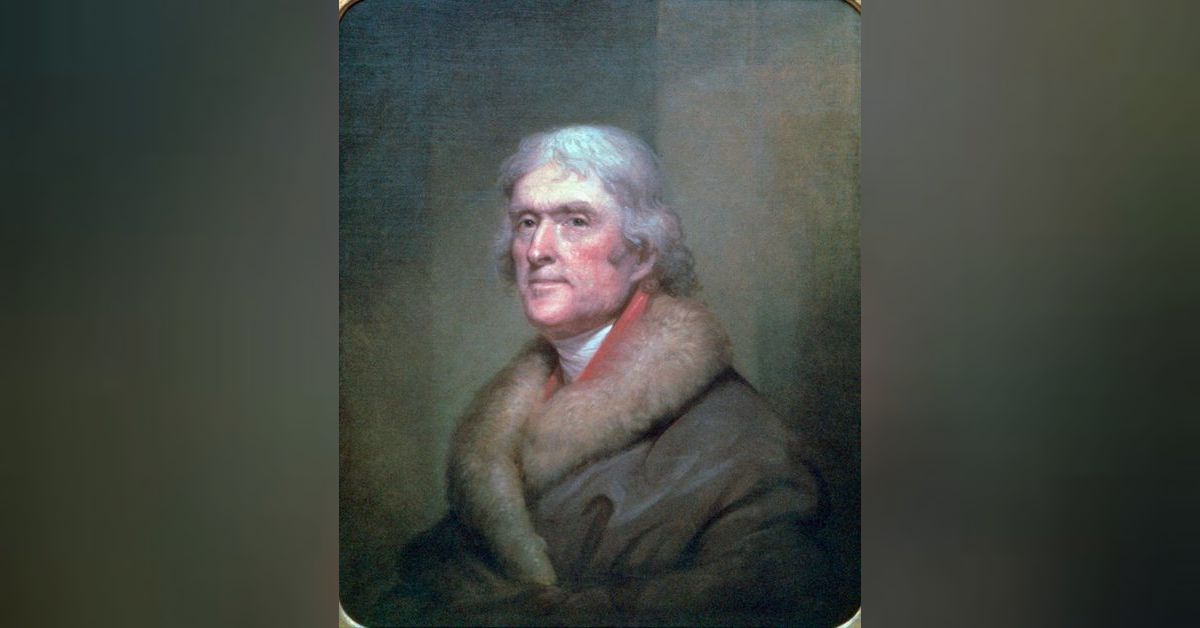Thomas Jefferson Notes On The State Of Virginia Summary
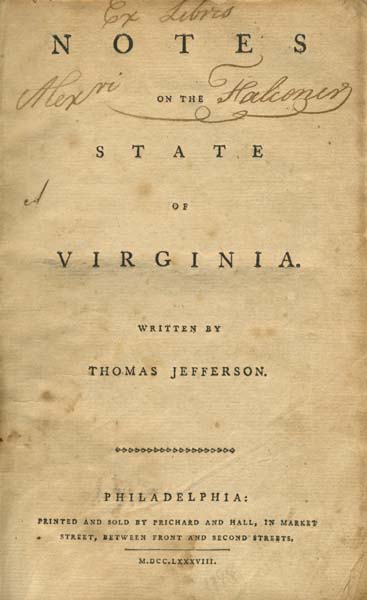
Thomas Jefferson’s Notes on the State of Virginia, penned in the 1780s, stands as a landmark in American literature and political thought. However, it also remains a source of intense controversy due to its deeply problematic views on race and slavery, casting a long shadow over Jefferson's legacy and American history itself. The text reveals a complex portrait of the man – an Enlightenment thinker, a naturalist, and a deeply flawed advocate for liberty who simultaneously perpetuated a system of profound oppression.
Notes on the State of Virginia is far more than a simple geographical survey; it’s a multifaceted exploration of the nascent American republic's identity, resources, governance, and societal values. This work, originally written in response to a questionnaire from French diplomat François Barbé-Marbois, offers invaluable insights into Jefferson’s multifaceted intellect and the socio-political landscape of post-revolutionary America. The following sections will delve into the book's key themes, scientific inquiries, views on slavery, and lasting impact, providing a balanced perspective on this pivotal, yet ethically complicated, work.
Jefferson’s Vision of America: Environment and Governance
Jefferson meticulously details Virginia's geography, climate, flora, and fauna. He believed a deep understanding of the natural world was essential for informed governance and the prosperity of a republic. His observations reflect an Enlightenment emphasis on empirical data and rational inquiry.
He champions agriculture as the foundation of a virtuous republic, advocating for a society of independent farmers rooted in the land. Jefferson saw urban centers as breeding grounds for corruption and dependence. This agrarian ideal underpinned his political philosophy and shaped his vision for the nation's future.
Scientific Observations and Philosophical Musings
Notes includes detailed discussions on Native American history and culture, though colored by the prevailing biases of the time. Jefferson's writings reveal a complex attitude towards Native Americans. He admired certain aspects of their societies while also advocating for their assimilation into American culture.
He challenged European claims of American degeneracy, arguing that American species of animals were equal, if not superior, to their European counterparts. This was a point of national pride for Jefferson, a testament to the unique qualities of the New World.
The Contradiction of Slavery
Perhaps the most contentious aspect of Notes on the State of Virginia is Jefferson's treatment of slavery. He acknowledged the inherent injustice of the institution, describing it as a moral and political evil. Yet, he simultaneously expressed deep-seated racist beliefs about the supposed inferiority of Black people.
Jefferson proposed gradual emancipation coupled with colonization – the deportation of formerly enslaved people to another country, perhaps Africa. He believed that free Blacks and whites could not coexist peacefully in America due to ingrained prejudices and fears of racial conflict. This viewpoint, rooted in systemic racism, reveals the profound moral failings of even the most enlightened figures of the era.
His justification for these views is rooted in unsubstantiated claims about intellectual and physical differences between races. These passages are deeply disturbing and represent a significant stain on his legacy. Modern scholarship unequivocally refutes these racist assertions.
Impact and Legacy
Despite its flaws, Notes on the State of Virginia remains a significant historical document. It provides invaluable insight into the intellectual climate of the early American republic and the mind of one of its most influential figures. It is widely studied in courses on American history, literature, and political philosophy.
The book contributed to the development of American national identity and shaped debates on crucial issues like slavery, race, and governance. It continues to spark controversy and critical analysis. The contradictions within the text force us to confront the complex and often uncomfortable realities of the American past.
Contemporary Perspectives
Modern scholars offer diverse interpretations of Jefferson's work. Some focus on his contributions to democratic thought and his vision of an agrarian republic. Others emphasize the problematic aspects of his views on race and slavery, challenging the traditional heroic narrative of Jefferson as a champion of liberty.
Many historians argue that Jefferson's personal economic dependence on slavery significantly influenced his views and his inaction on the issue. His financial reliance on enslaved labor created a conflict of interest that prevented him from fully embracing his stated ideals. Critiques also question the supposed scientific objectivity with which Jefferson examined racial differences.
Examining Notes on the State of Virginia through a contemporary lens requires acknowledging the inherent power imbalances and biases present in the historical context. We must grapple with the uncomfortable truth that even the Founding Fathers were products of their time and perpetuated systems of injustice.
The Enduring Relevance
Thomas Jefferson’s Notes on the State of Virginia continues to be relevant in the 21st century. It encourages ongoing dialogue about the complexities of American history, the legacies of slavery and racism, and the ongoing pursuit of a more just and equitable society.
By confronting the contradictions and acknowledging the flaws within this pivotal text, we can gain a deeper understanding of the challenges and complexities that still shape the American experience. Jefferson's work serves as a crucial reminder that the fight for equality and justice is an ongoing process, one that requires constant vigilance and critical self-reflection.
Ultimately, studying Notes on the State of Virginia offers a valuable opportunity to engage with the complexities of American history, grapple with the enduring legacies of slavery and racism, and reaffirm our commitment to building a more inclusive and equitable future. It is through this critical engagement with the past that we can hope to create a better future for all.
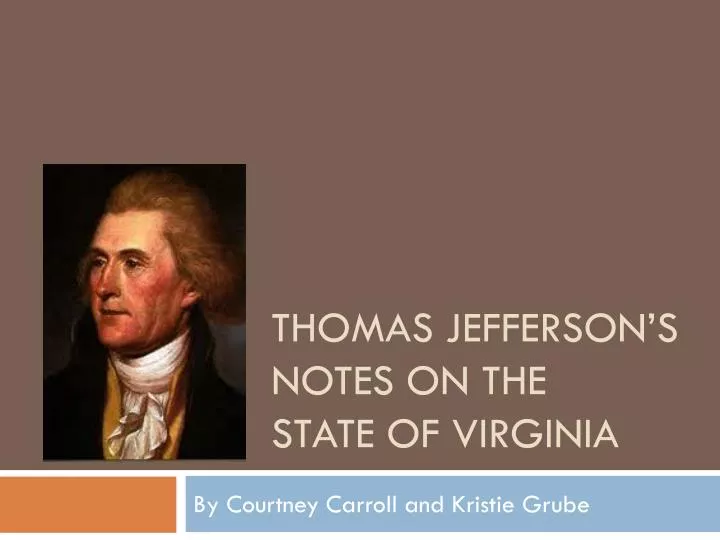



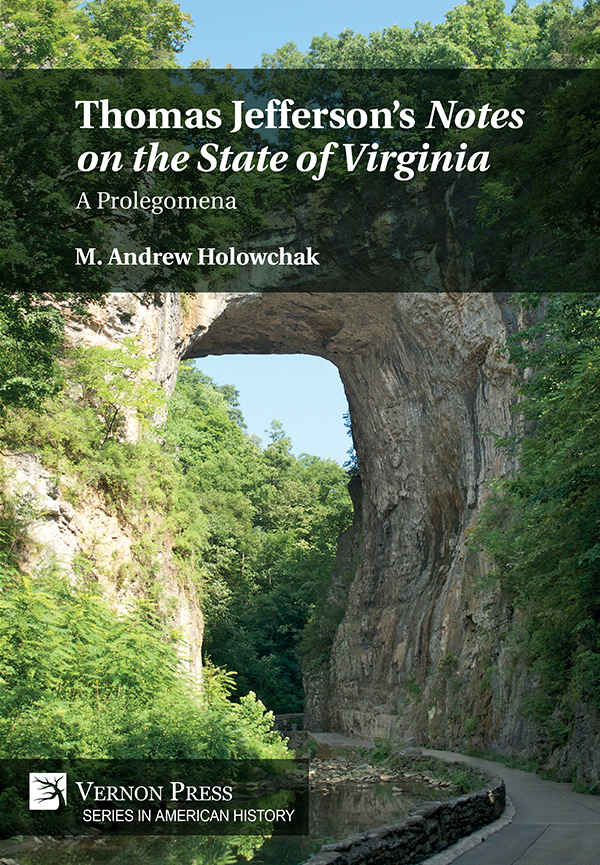



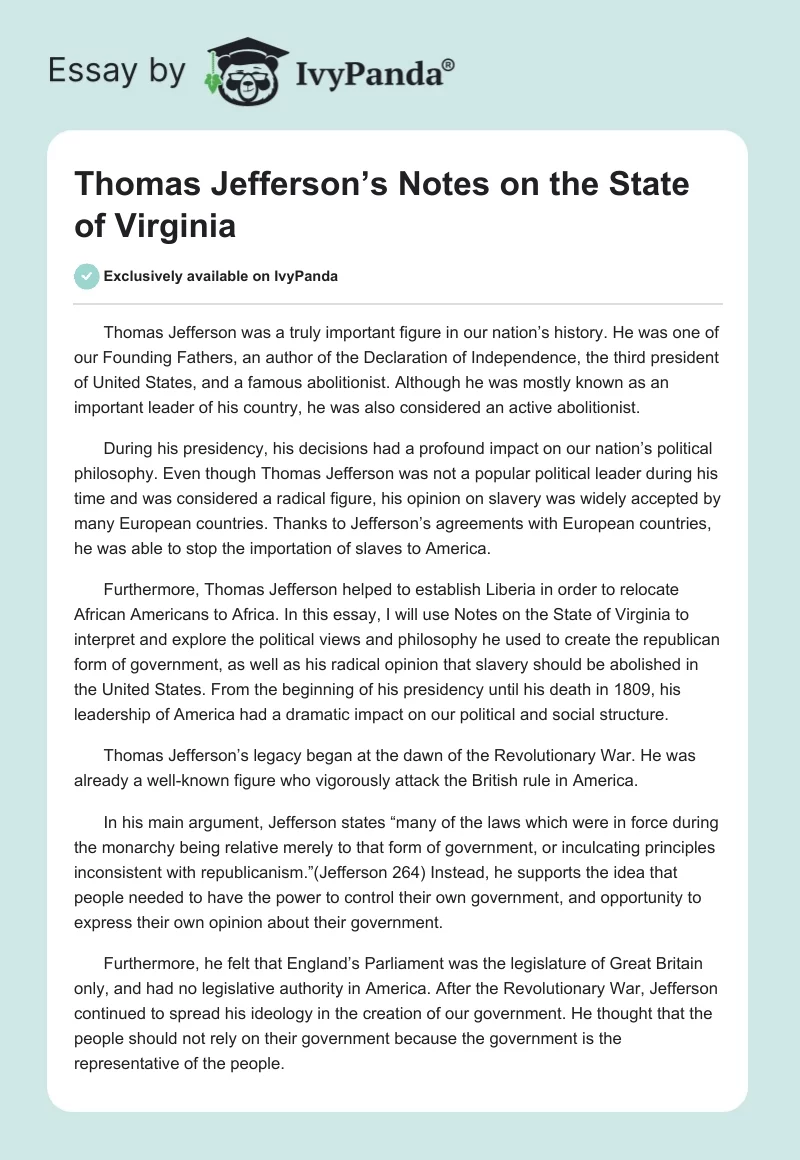




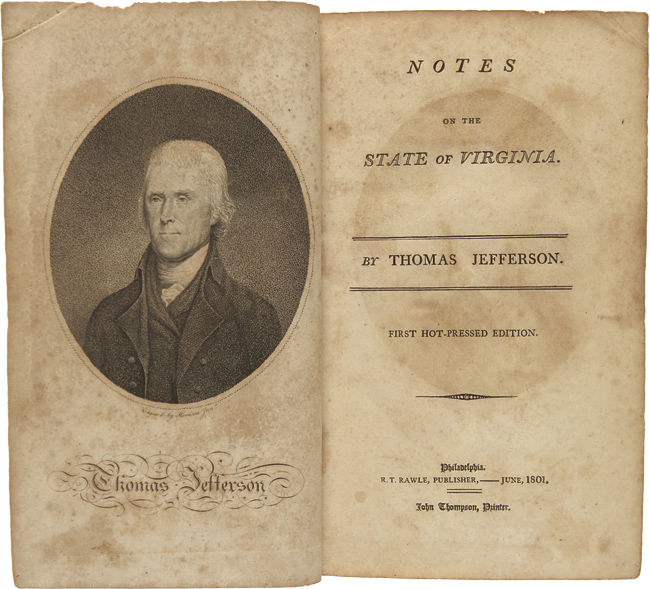

.jpg)
